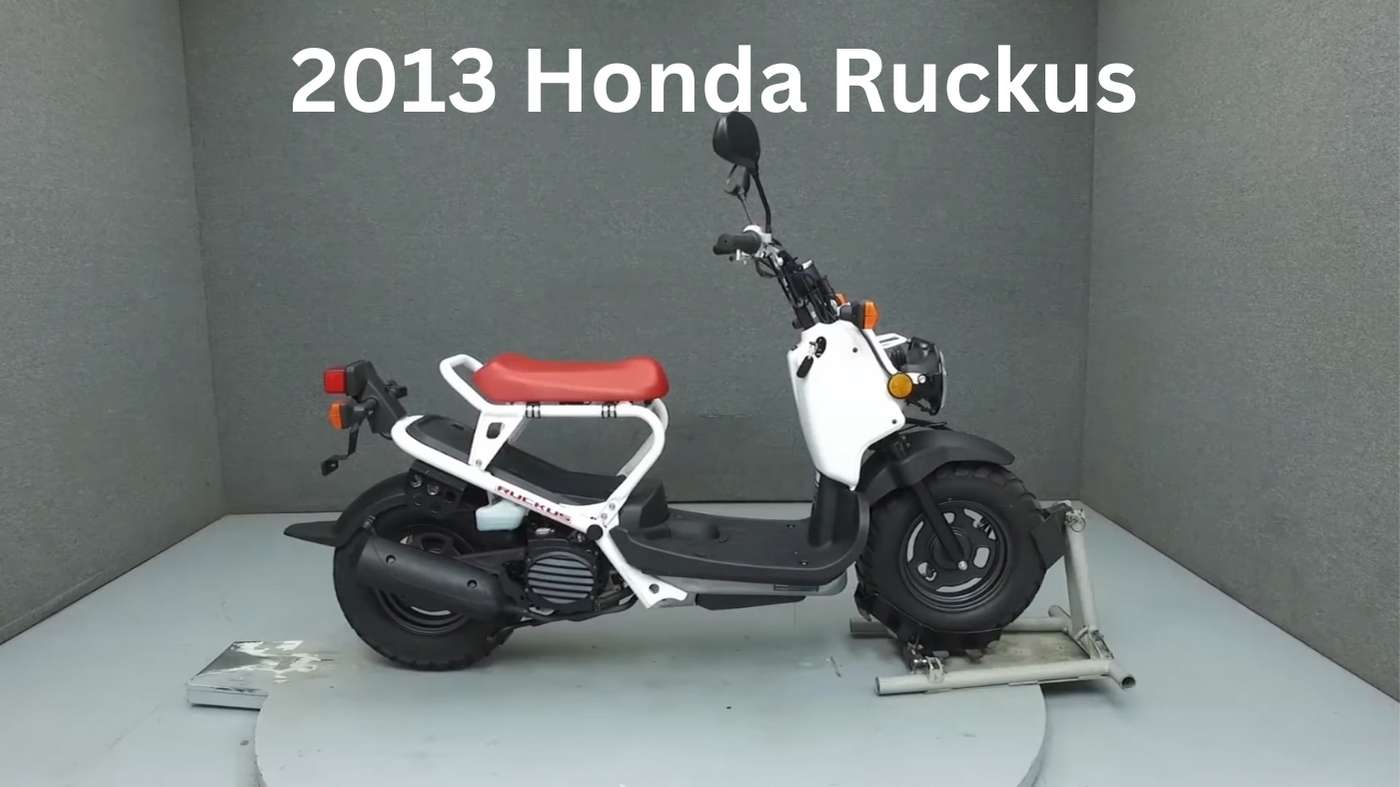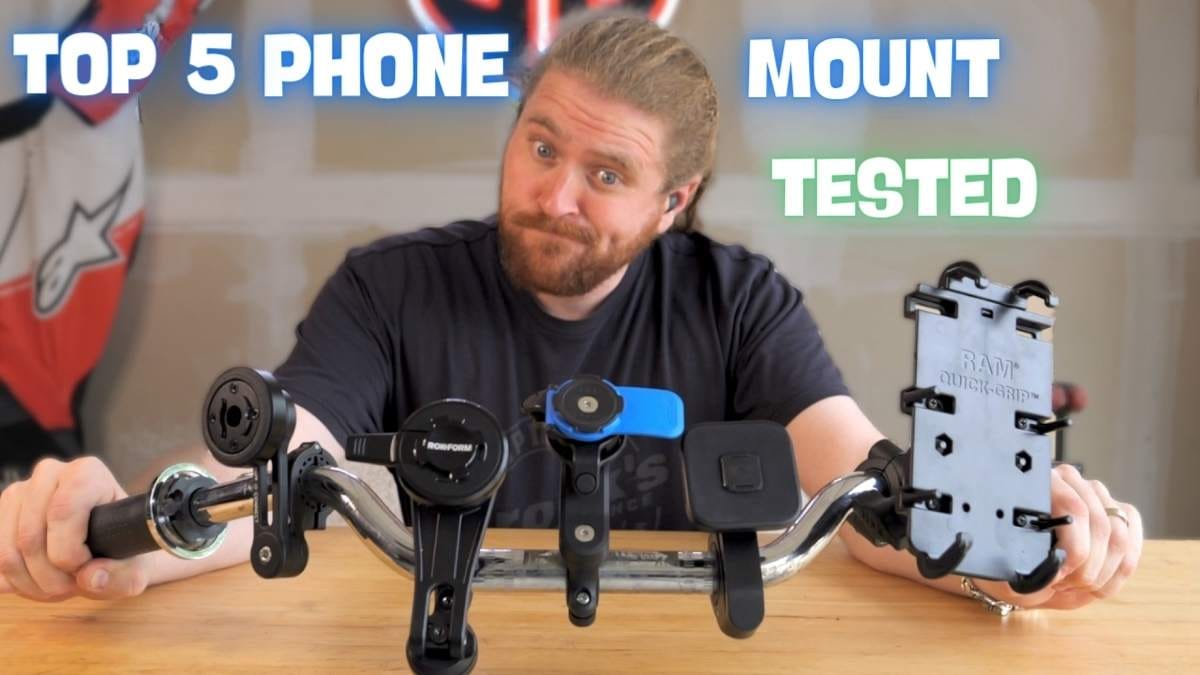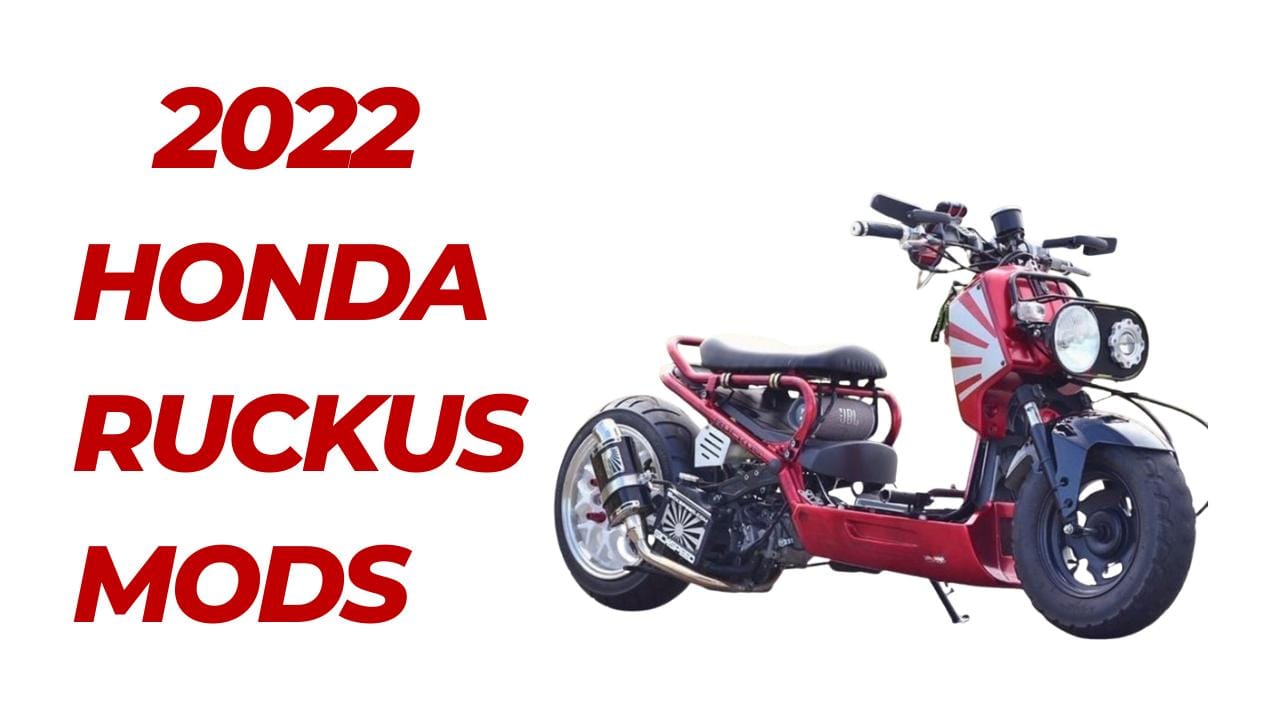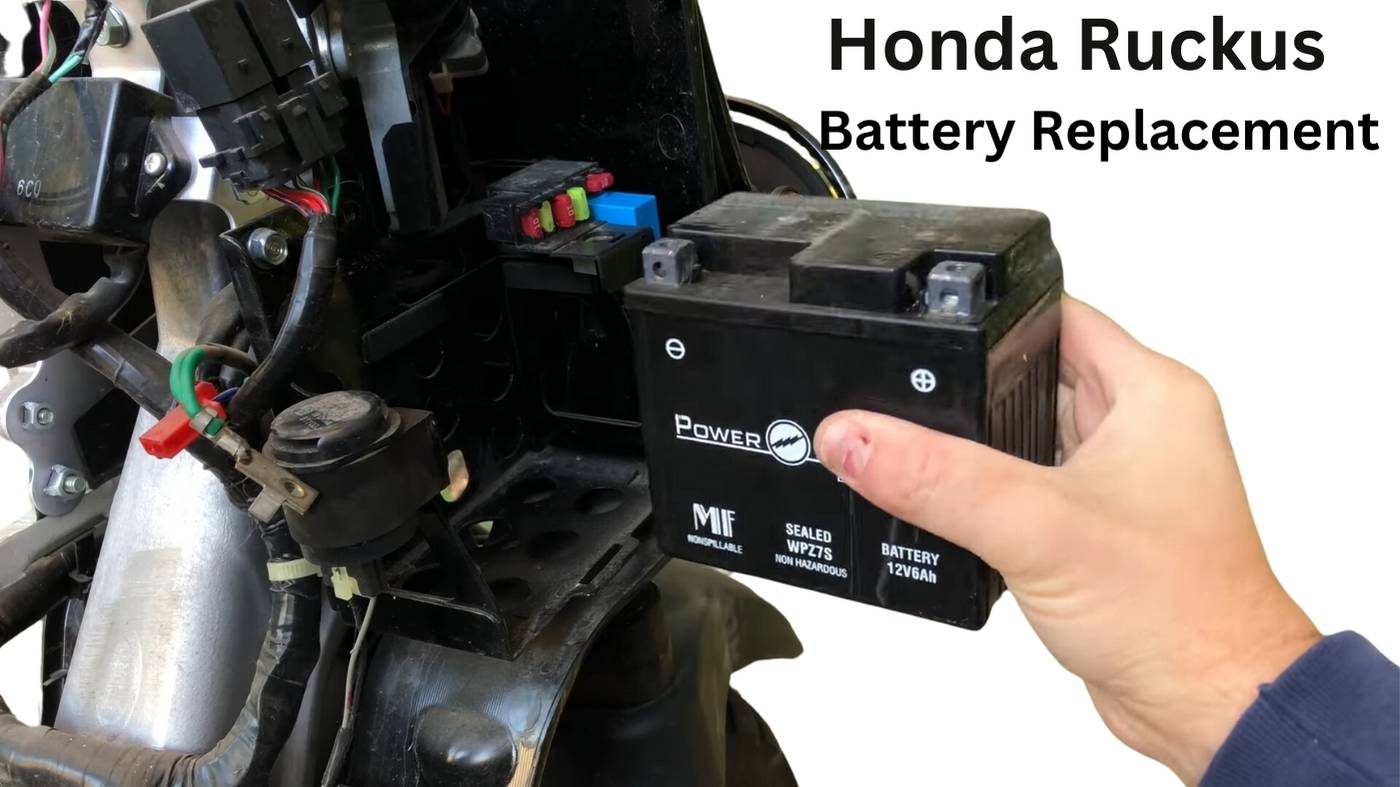When I first got my Honda Ruckus, I wasn’t exactly planning on taking it off-road. I mean, let’s be honest—when you think of off-roading, a 49cc scooter isn’t exactly the first thing that comes to mind. But the more I rode it around town, the more curious I got. Could this rugged little scooter handle more than just city streets? Could the Honda Ruckus off-road capability be more than just a rumor?
Well, I decided to find out. And what I discovered might surprise you. The Honda Ruckus, with its minimalist design and rugged build, isn’t just for running errands or commuting. With the right setup and a bit of know-how, this little beast can actually hold its own on some pretty rough terrain. So, if you’ve ever wondered whether the Ruckus could handle a trail or two, stick around—I’ve got some insights you won’t want to miss.
Table of Contents
ToggleEngine Performance for Off-Roading
One of the first things you’ll notice about the Honda Ruckus is its engine—or, more accurately, its small but mighty 49cc liquid-cooled single-cylinder engine. Now, I’ll be straight with you—this isn’t an engine that’s going to blow you away with power. But that’s not really the point, is it? The Ruckus was designed to be efficient, reliable, and easy to handle, especially for beginners. And it nails that brief.
When it comes to off-roading, the engine’s modest power output does have its limitations. It’s not going to rip through trails like a dirt bike, but it will get you through most terrains if you manage your expectations. On flat or slightly rough terrain, the Ruckus performs admirably. The low-end torque is enough to push through some loose gravel or dirt without much fuss. However, when the trails get steeper or the ground gets more uneven, you’ll start to notice the limits of that 49cc engine.
That said, the Honda Ruckus off-road capability isn’t solely about power. It’s about how you use it. With the right approach, the Ruckus can still deliver a fun and engaging off-road experience. Just don’t expect it to conquer mountains—but for light trails and dirt paths, it’s more than capable.
Suspension and Chassis: Key to Off-Road Stability
If you’re planning on taking your Ruckus off the beaten path, the suspension and chassis are where things get interesting. The Ruckus comes with a front telescopic fork offering 1.9 inches of travel and a single rear shock with 2.6 inches of travel. On paper, that doesn’t sound like much, especially when you compare it to more dedicated off-road bikes. But in practice, it’s enough to handle the kind of light off-roading the Ruckus was designed for.
The chassis is another story. The lightweight frame makes the Ruckus nimble and easy to maneuver, which is a huge plus when navigating tight trails or dodging obstacles. However, the same lightweight design can be a double-edged sword. On particularly rough terrain, the Ruckus can feel a bit skittish. The suspension does its best to soak up bumps, but you’ll definitely feel it if you hit something big.
That’s where modifications come in. To truly enhance the Honda Ruckus off-road capability, many riders opt to upgrade the suspension. Stiffer springs or aftermarket shocks can make a world of difference, providing better stability and a more comfortable ride when the going gets tough. And trust me, if you’re serious about off-roading, those upgrades are worth every penny.
Tire Options and Ground Clearance for Off-Roading
Let’s talk tires. The stock tires on the Honda Ruckus are fine for city streets, but if you’re planning on taking it off-road, you might want to consider an upgrade. The standard tires offer decent grip on pavement, but when it comes to dirt, gravel, or mud, they can struggle.
For improved Honda Ruckus off-road capability, many riders swap out the stock tires for something with a bit more bite. Knobby tires, for example, are a popular choice. They provide better traction on loose surfaces, helping you maintain control even when the ground beneath you is less than ideal.
Another thing to consider is ground clearance. The Ruckus doesn’t have a ton of it, which means you’ll need to be mindful of obstacles. Rocks, roots, and ruts can all pose a challenge. While the Ruckus can handle small bumps and uneven ground, anything more substantial could cause trouble. Again, this is where choosing the right tires and possibly even raising the suspension can make a difference. It’s all about finding the right balance between maintaining comfort and improving off-road performance.
Modifications to Enhance Honda Ruckus Off-Road Capability
If you’re like me and you’re all about squeezing every bit of performance out of your ride, then modifications are probably on your mind. The good news? The Honda Ruckus is incredibly modifiable, and there are plenty of ways to boost its off-road capability.
One of the first things I did was upgrade the suspension. As I mentioned earlier, the stock setup is decent, but if you’re serious about off-roading, stiffer springs and better shocks can really enhance your experience. The ride becomes smoother, and you’ll find that the Ruckus handles bumps and dips much better.
Next up, tires. I can’t stress enough how important it is to have the right tires for off-roading. Knobby tires transformed my Ruckus from a city commuter into a trail-ready machine. The difference in grip was night and day, and it gave me the confidence to tackle more challenging terrain.
Another popular mod is to reinforce the frame. The Ruckus is light, which is great for maneuverability, but it also means the frame can take a beating on rough trails. Adding a bit of reinforcement, whether through aftermarket parts or DIY methods, can help your Ruckus stand up to tougher conditions.
Of course, there are plenty of other mods you can make depending on your needs. From exhaust upgrades to custom handlebars, the possibilities are endless. The key is to focus on the mods that will give you the most bang for your buck in terms of off-road capability.
Real-World Off-Road Experiences
Now, let’s get into some real-world experiences. I’ve taken my Ruckus on a variety of trails, from easy dirt paths to more challenging rocky roads, and I’ve learned a lot along the way.
On flat, well-maintained trails, the Honda Ruckus off road capability is more than enough. It’s actually a blast to ride. The light weight and nimble handling make it easy to navigate tight corners and dodge obstacles. It’s on these kinds of trails where the Ruckus really shines.
However, when the trails get rougher, you start to notice the limitations. Steep inclines can be a challenge, especially if the ground is loose or uneven. The 49cc engine does its best, but it can struggle to maintain momentum. This is where those modifications come in handy. With the right tires and suspension, the Ruckus can tackle more challenging terrain, but it’s important to know its limits.
I’ve also noticed that rider weight can play a role in performance. I’m on the lighter side, so the Ruckus handles better for me on rough terrain than it might for someone heavier. It’s something to keep in mind if you’re considering taking your Ruckus off-road.
Overall, the Honda Ruckus is capable, but it’s not a dirt bike. It’s important to have realistic expectations and to enjoy the ride for what it is—a fun, light-duty off-roader that can take you places you might not expect.
Comparing the Honda Ruckus to Other Off-Road Capable Scooters
So how does the Honda Ruckus stack up against other scooters when it comes to off-road capability? Let’s compare it to a couple of other popular options: the Honda Trail 125 and the Yamaha Zuma.
The Honda Trail 125 is built with off-roading in mind. It has more power, better suspension, and higher ground clearance. If serious off-roading is your goal, the Trail 125 is probably the better choice. However, it’s also more expensive and requires a motorcycle license, which might be a dealbreaker for some.
The Yamaha Zuma is another interesting comparison. It’s a 50cc scooter like the Ruckus, but it’s designed with a bit more ruggedness in mind. It has knobby tires out of the box and a slightly more aggressive suspension setup. In terms of off-road capability, the Zuma might have a slight edge, but the Ruckus wins in terms of customizability and style.
In the end, the Honda Ruckus off road capability might not be as robust as these other scooters, but it’s unique. It offers a blend of urban practicality and off-road fun that’s hard to find in other models. Plus, with the right…blend of urban practicality and off-road fun, the Ruckus offers something that’s hard to find in other models. Plus, with the right modifications, you can push its boundaries and make it a more formidable off-roader.
Is the Honda Ruckus the Right Off-Road Scooter for You?
If you’re considering the Honda Ruckus for off-road adventures, the big question is whether it’s the right fit for your needs. From my experience, if you’re looking for a light, fun, and customizable scooter that can handle some light off-roading, the Ruckus is a solid choice. It’s perfect for those who want to blend urban commuting with the occasional off-road trail.
However, if you’re looking for a scooter that can tackle more serious off-road conditions or if you need something with more power and ground clearance, you might want to look at alternatives like the Honda Trail 125 or even a small dirt bike.
The Ruckus is all about balance. It’s not the best at any one thing, but it’s pretty good at a lot of things. It’s affordable, easy to ride, and with a few tweaks, it can handle a surprising amount of off-road terrain. For me, that versatility is what makes the Honda Ruckus such a great little machine.
In summary, the Honda Ruckus off road capability might not turn it into a dirt bike, but it’s certainly capable of handling more than just city streets. With the right modifications and a bit of care, it can take you on some pretty fun off-road adventures. It’s all about knowing its limits and playing to its strengths. So, if you’re curious about whether the Ruckus can handle the dirt, I say go for it—you might be pleasantly surprised by what this little scooter can do.
FAQ Section
Can a Honda Ruckus go off-road?
Yes, the Honda Ruckus has basic off-road capabilities, especially with some modifications. Its lightweight design and rugged build make it suitable for light off-road use, though it’s not built for extreme terrains.
What modifications improve Honda Ruckus off-road capability?
Common modifications include upgrading to knobby tires for better traction, enhancing the suspension for improved stability, and reinforcing the frame for added durability.
How does the Honda Ruckus perform on dirt roads?
The Honda Ruckus can handle dirt roads moderately well, especially if the terrain is not too rough. However, its small engine and limited suspension travel can be limiting factors on more challenging trails.
Is the Honda Ruckus good for trail riding?
While the Honda Ruckus can handle light trails, it is not designed for aggressive trail riding. It’s better suited for urban environments and mild off-road conditions.
What are the best tires for Honda Ruckus off-road use?
Upgrading to knobby or dual-sport tires can significantly improve the Honda Ruckus’s off-road performance, offering better grip and stability on rough terrains.







